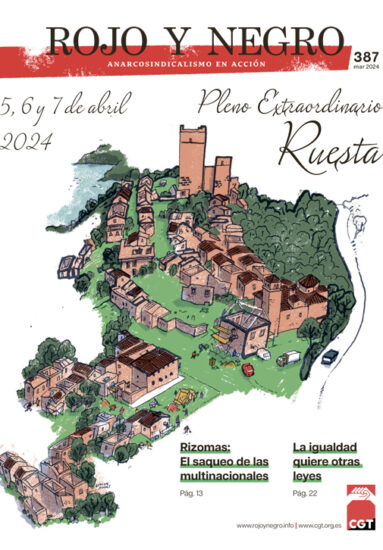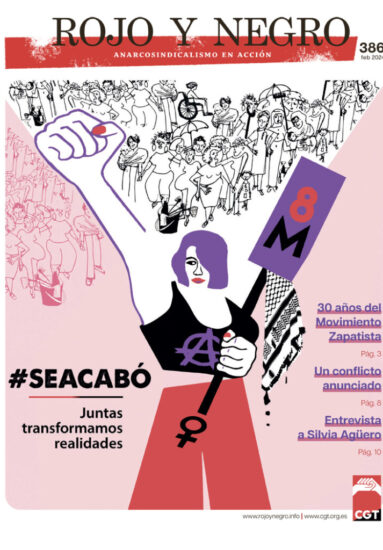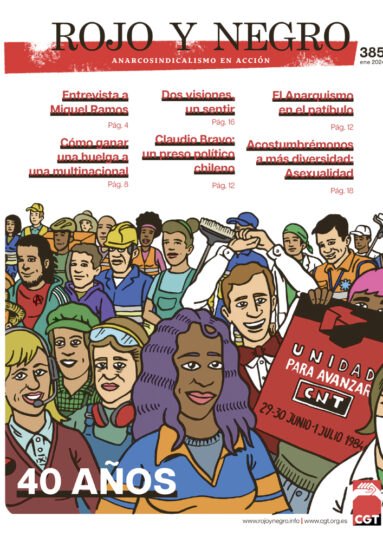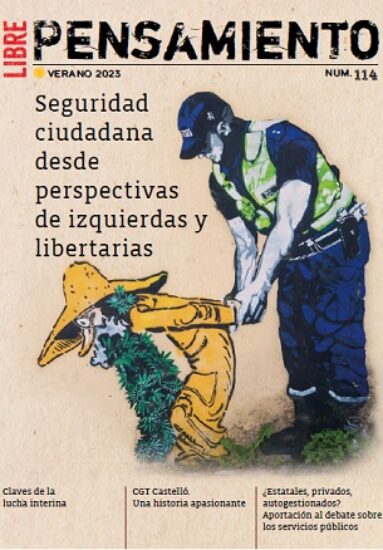Forzar a los medios estadounidenses dar cobertura de portada a Hugo Chávez y a Mahmoud Ahmadinejad en su despliegue verbal desde la palestra en la ONU – algo políticamente apropiado para clausurar el verano – pudiera describirse como “shock and awe”. La verdad se administró con una siringe de gran tamaño en vez de cuentagotas, y para muchos eso significa “shock and awe”.
Si no los comentarios comedidos del presidente iraní sobre la injusticia de la ONU, lo que Hugo Chávez tuvo que decir creo un efecto de “shock and awe” en la población norteamericana. Los estadounidenses se crían en la creencia de ser poseedores de una autoridad moral indiscutible sobre el mundo entero dada su “virtud original” – el excepcionalismo estadounidense – en contraste al resto del mundo que nace con el “pecado original”, fuera del estado de gracia por no ser estadounidenses. Todo eso empezó allá por 1831 gracias a Alexis de Tocqueville.
Pero el excepcionalismo estadounidense ha sido desacreditado como un simple atentado en el siglo XXI en globalizar el Manifiesto de Destino del siglo XIX – una falsa autoridad moral que permitiera anexionar el Occidente Continental Norteamericano, algo que despojó a los indios y a los mejicanos de sus tierras y culturas. Sin embargo, tal Manifiesto de Destino, aun con su apéndice de la Doctrina Monroe, solo otorgó a los estadounidenses “derechos” a Las Américas, algo insignificante para una nación con un aparente apetito galáctico para gobernar o influenciar.
Si vamos al grano, el excepcionalismo estadounidense, tanto hace unas generaciones como hoy, no difiere en lo mínimo al imperialismo europeo de siglos pasados. Y la idea de que EEUU establece la norma de comportamiento en derechos humanos, o que se adhiera a esa norma, ha probado por el presente, si no siempre, ser un error. El comportamiento de EEUU desde finales de la Segunda Guerra Mundial ha hecho que la idea del excepcionalismo haya encogido paulatinamente, convirtiéndose en una justificación egocéntrica y patriotera para los estadounidenses en describirse como personas que no son. Cierto que los norteamericanos son diferentes, y poderosos en muchos aspectos, pero definitivamente no superiores.
El resultado final que los Señores Chávez y Ahmadinejad nos trajeron a la mesa es simple y claro : paz y tranquilidad serán difíciles de conseguir mediante las estructuras internacionales ahora vigentes, como la ONU, por ser injustas a la mayoría de naciones y pueblos del planeta. La ONU, que no es sino un producto de la Segunda Guerra Mundial, tan solo ha atendido los deseos de los victoriosos en ese conflicto – los ya poderosos – y no las necesidades de los pueblos emergentes desde entonces – los que carecen de poder – que requieren instituciones que les escuchen y ayuden en sus esfuerzos para triunfar en todos los ámbitos : político, económico y social. A estos dos caballeros, cuyo pensamiento probablemente paragona el de la gran mayoría de naciones, EEUU trae un comportamiento contrario a esa paz y tranquilidad, o la justicia social anhelada por el mundo. Y el promotor de ese comportamiento es Bush.
El pijo “squatter” que ocupa la Casa Blanca puede que no sea el diablo, tal como lo describe Chávez, pero el rastro que deja en sus actos, tanto internacionales como domésticos, apesta a sulfuro y a huevos podridos. Claro que infinitamente más importante que el olor son el dolor, muerte y destrucción que deja a su paso por culpa de decisiones miopes.
Uno supone que Hugo Chávez bromeó para obtener nuestra atención, y dar su punto. La realidad es que George W. Bush justifica la definición que suele darse al Príncipe de las Tinieblas, y la asociación con horrendos personajes históricos. Aun un benigno idiota a quien se le da un poder tremendo, como lo es la presidencia de EEUU, puede causar daños irreparables a la humanidad… y convertirse en diablo. [Estoy totalmente convencido que de existir tiene genero masculino.]
Los estadounidenses, bien sean miembros de los medios, políticos de ambas hermandades [Republicanos y Demócratas], oficiales del gobierno o publico en general lo han tomado como un afronte, furiosos por el descaro de estas dos personas, motejándoles con insultos. [El excepcionalismo estadounidense sigue vivito y coleando para las filas de los dos partidos políticos.]
Hiciera o no mella la verdad en los estadounidenses, Ahmadinejad y Chávez dieron un momento de gloria a los desamparados políticos, naciones o pueblos, a quienes no se les ofrece podio desde donde puedan expresar las iniquidades que sufren. Mahmoud y Hugo, aunque tan solo por un momento, fueron su voz al mundo… haya o no quien escuche.
¿Aportaron estos discursos “shock and awe” diplomático ? Probablemente no, ya que los que tienen las riendas del poder son despiadados e inquebrantables. Aun así, mientras hay vida hay esperanza.
© 2006 Ben Tanosborn
www.tanosborn.com/articulos.html
“Shock and awe” diplomacy confronts American exceptionalism
Forcing American media to give front page coverage to what Mahmoud Ahmadinejad and Hugo Chavez had to say this week from the podium at the United Nations – a very appropriate political closing to the summer – could be described as “shock and awe.” Truth was dispensed via a large syringe instead of an eyedropper and to many people that represents shock and awe.
If not the measured remarks on the unfairness of the UN by Iran’s president, what Hugo Chavez had to say certainly had a “shock and awe” effect domestically. Americans are raised in the belief that they are the possessors of unquestionable moral authority for the entire world because of their “original virtue” – American exceptionalism – in total contrast to the rest of the world who are born with the “original sin”… out of grace simply for not being Americans. Yes, it all started back in 1831 with Alexis de Tocqueville.
But “American exceptionalism” has been debunked as nothing more than a 21st century attempt to globalize the 19th century Manifest Destiny – a pseudo moral authority to annex much of Western Continental US, which resulted in kicking Indians and Mexicans out of both their cultures and their lands. Unfortunately, such Manifest Destiny, even with its Monroe Doctrine addendum, only covered “our rights” to the Americas, a puny hemisphere for a nation with an apparent galactic appetite to govern or influence.
Down to the nitty-gritty, American exceptionalism, whether a few generations ago or today, is not an iota different from what European imperialism was centuries past. And the idea that America sets the norm for human rights behavior, or even adheres to it, has proved to be presently, if not always, wrong. America’s behavior since the end of World War II has shrunk the idea of American exceptionalism to that of a self-centered, chauvinistic justification for Americans to portray themselves as a people they are not. Yes, Americans are different, powerful in many ways, but definitely not superior.
The bottom line as to what Messrs. Ahmadinejad and Chavez brought to the table is simple and to the point : peace and tranquility in the world are unlikely to be achieved with present international structures, such as the UN, which are unfair to a majority of nations and peoples in this planet. A product of the WWII conflict, the United Nations has only catered to the desires of the victors in that conflict – those already powerful – and not to the needs of emerging peoples – those who lack any power – and who are most in needs of institutions that can give them a fair hearing in their political, social and economic struggles. To these two gentlemen, whose thinking probably parallels that of most nations, the US brings forth a behavior counter to peace and tranquility… or even social justice. And driving that behavior is President Bush.
The preppy squatter living in the White House may not be the devil, as portrayed by Chavez, but indeed the trail he leaves behind, in both domestic and international deeds, stinks of sulfur and hydrogen sulfide. Infinitely more important than the odor, however, is the pain, death and destruction caused by his myopic decisions.
One surmises that Hugo Chavez spoke in jest to get our attention, and his point across. The reality is that George W. Bush does justice to a common definition of the Prince of Darkness, and the association we have made with some horrendous historical people. Even a benign idiot crowned with an office of tremendous power, such as the US presidency, can cause insurmountable damage to mankind… become a he-devil. [I am convinced that if a devil does exist, it is not a she-devil, nor gender-neutral.]
Americans, whether members of the media, politicians of both fraternities, government officials or the public at large, have for the most part become irate to what they consider the impudence of these two people, branding them with demeaning and highly insulting names. [American exceptionalism is alive and well, and bipartisan in political affairs.]
Whether or not the truth made a dent in Americans, Ahmadinejad and Chavez gave a moment of glory to the disenfranchised many, whether nations or peoples, who aren’t offered a podium from which they can voice the iniquities they suffer. Mahmoud and Hugo, if for a moment, became their voice to the world… whether anyone listens or not.
Did these speeches bring diplomatic “shock and awe” ? Not really, not when those who have the reins of power are heartless and shock-proof. But hope springs eternal.
© 2006 Ben Tanosborn
www.tanosborn.com/columns.html
Fuente: Ben Tanosborn












